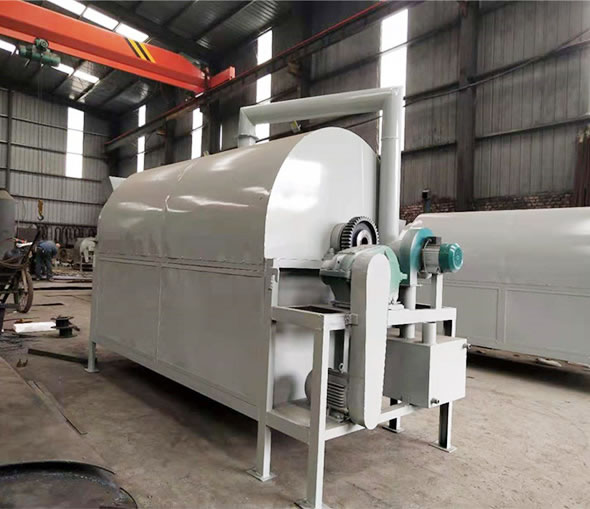






In the lush orchards of Thailand, where the sun blesses the land with its generous rays, citrus fruits thrive. Among them, lemons and tangerines stand out, their vibrant colors and zesty flavors a testament to nature's bounty. For artisans and small-scale farmers, capturing these essences is not just a livelihood but an art form. This is where dehydration equipment plays a pivotal role, transforming the transient freshness of citrus into lasting, concentrated flavor treasures.
Dehydration, a process of removing moisture from food products, has been around for centuries. In Thailand, it has evolved into a fine craft that preserves the natural taste and nutrients of fruits while extending their shelf life. Lemons and tangerines, with their high water content, are ideal candidates for dehydration. When subjected to precise temperatures and controlled conditions using modern dehydration equipment, they yield crispy dried slices, flakes, or powders that burst with flavor.
The process begins with selecting the perfect fruit - ripe, unblemished, and rich in fragrance. Once harvested, each fruit is carefully washed and prepped. The peel, often discarded as waste, is sliced thinly, revealing its hidden treasures. Using specialized dehydrators, these peels are slowly dried, allowing the water to evaporate while preserving the essential oils that give lemons and tangerines their distinctive taste.
As the peels dry, they take on a leathery texture, concentrating the citrus flavors. These can be used as is, or further processed into flavored salts, sugars, or mixed into tea blends. The remaining fruit flesh does not go to waste; it is either eaten fresh, made into jams, or also dehydrated to create a chewy, sweet snack that retains the tartness of the original fruit.

For those who delve deeper into the art of citrus dehydration, creating unique flavors is the ultimate goal. By experimenting with different drying times, temperatures, and post-processing techniques, artisans can coax a range of tastes from a single fruit. Some might opt for a milder, more subtle flavor profile, while others seek to intensify the citrus punch.
The benefits of dehydration extend beyond flavor. Dried citrus peels and flesh have a significantly longer shelf life than their fresh counterparts, making them valuable commodities for small businesses looking to expand their market reach. They can be packaged elegantly and sold as gourmet snacks or used as ingredients in a variety of dishes, from savory to sweet.
Moreover, dehydration equipment has become more accessible to small-scale producers. With affordable and efficient machines designed specifically for artisanal operations, the dream of preserving Thailand's citrus legacy becomes attainable. These machines are easy to use, require minimal energy, and can be operated with basic training, allowing even the most traditional of farms to integrate modern techniques without losing their artisanal spirit.
In conclusion, dehydration equipment in Thailand is not merely a tool for preservation; it is a bridge between tradition and innovation, a means to capture the fleeting essence of citrus seasons, and a way to share the joy of lemon and tangerine flavors with the world. As the popularity of artisanal foods continues to rise, so too does the demand for these sun-kissed delicacies, ensuring that the dreams of Thai citrus artisans will continue to flourish, one slice at a time.